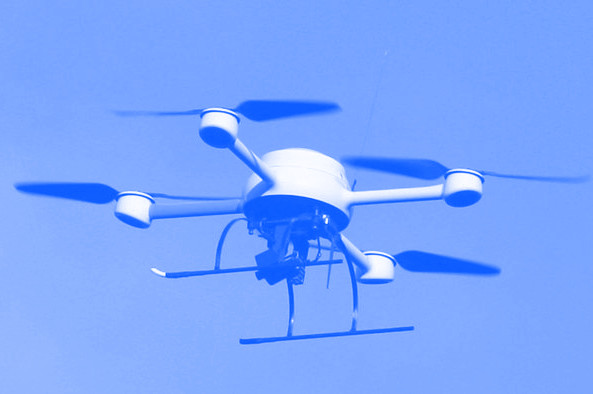Drone-stalking laws suggested
 Experts say Australia should work on tighter drone laws for public safety and privacy.
Experts say Australia should work on tighter drone laws for public safety and privacy.
The Civil Aviation Safety Authority (CASA) says it receives about 3,000 complaints about drone activities, including stalking, each year.
Lawyer and Queensland University of Technology professor Julie-Anne Tarr - co-author of a new book on drone law and policy - says the technology is advancing rapidly, but laws have not kept pace.
She is calling for national safety and privacy legislation for the use of drones by government, corporate and private citizens.
“This means noise, personal privacy rights and criminal uses need an urgent response,” Professor Tarr has told the ABC.
“Many types of drones are, and may remain, untraceable. Tiny drones are state-of-the-art commercial devices that are capable of Hollywood-grade filming and capable of significant damage if that is what the operator's aim is.
“It is a huge challenge for regulators to even begin to manage this need.
“Right now we have a hodge-podge of language, absolute hodge-podge, none of the states have any consistency across this.
“Quite apart from standardised safety, privacy and data protection laws, we need owner registration, third-party insurance for drone operators and/or owners, and the legal requirement to keep an activity log.”
Next year, a new CASA registration and accreditation requirement will apply to all drones operated recreationally that weigh more than 250 grams.
Professor Tarr says that the weight threshold may be too high.
“The use of privately owned drones is one of the black holes of legislation,” she says.
“At 250 grams or less, it started as a cute little toy but with technology and upgrading it is now something that is quite capable of delivering a sinister impact.”
Domestic violence experts say the technology is being used by abusive partners.
“When one looks at the existing definition of unlawful stalking in Queensland, what the first element of that offence is, that the person who is doing the unlawful stalking has to [take action] that intentionally is directed at a person,” says Women's Legal Service lawyer Julie Sarkozi.
“So you can imagine if I am flying a device that has a very broad scope and it might be quite difficult for a jury to believe that the actual pictures taken were intentionally directed at a person.
“And in this case, it might be the person they are trying to harass.
“Excuses are easy — ‘Oh that I was just looking at the beach, I was just looking at the road, I was just looking at the neighbourhood’.
“In fact, where there are other people around I argue that it would be almost impossible to convict someone for unlawfully stalking you using a drone.
Australia’s Domestic and Family Violence Act refers to “surveillance equipment”, but Ms Sarkozi says “it is unclear if drones would fall into the definition that is used in that Act”.
“There is also no explicit use of the word 'drone-type surveillance' in the Women's Safety and Justice Taskforce, so there is merit in raising the absence of this within the context of a legal loophole,” she says.








 Print
Print